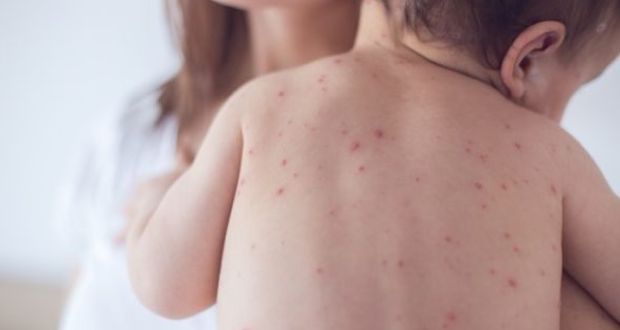A measles outbreak in Co. Donegal has continued, with seven cases of the disease now confirmed by the HSE.
The outbreak began two weeks ago and the HSE advises anyone who suspects they may have measles to call their GP to inform them, rather than going to the surgery.
The number of people receiving the MMR (Measles, Mumps, Rubella) vaccine in Donegal has been dropping slightly over the past few years.
The HSE states that as soon as vaccination rates fall, old diseases then re-emerge, which is why there has been outbreaks of measles occurring in Ireland and Europe.
Dr. Anthony Breslin, a Specialist in Communicable Diseases and Environmental Health, explained the two ways in which the MMR vaccine works.
“Vaccines work in two ways. The first is by directly protecting the person who receives the vaccine. The Measles part of the MMR is 95% effective.
“The second way in which the MMR works is through herd immunity. This means that if we have 95% of the population vaccinated then the virus cannot infect people and there is no virus circulation.
“Herd immunity is important because some people cannot get the vaccine for health reasons and some people who do get the vaccine may have a poor response to the vaccine. Therefore, both of these groups are susceptible to infection from the virus,” Breslin said.
“This means that there is no herd immunity and if the measles virus gets into a population or community those who are not immunised, who cannot be immunised or who have a poor response to vaccination will become infected”.
Measles is very infectious and is an illness which can have serious complication, particularly in infants under 12 months and people with weakened immune systems.
The disease is transmitted through direct contact with an infected person or through the air when an infected person coughs or sneezes.
Symptoms can include a rash, along with cough, runny nose, conjunctivitis and high fever. The rash usually starts four days after other symptoms.
There has also been a large rise in the outbreak of mumps at the beginning of 2019. In the first six weeks of the year, 278 mumps cases were notified in comparison to 43 for the same time period in 2018. There were 576 cases in all of 2018, according to the Health Protection Surveillance Centre.
Gerard Grimes
Image Credit: istock
